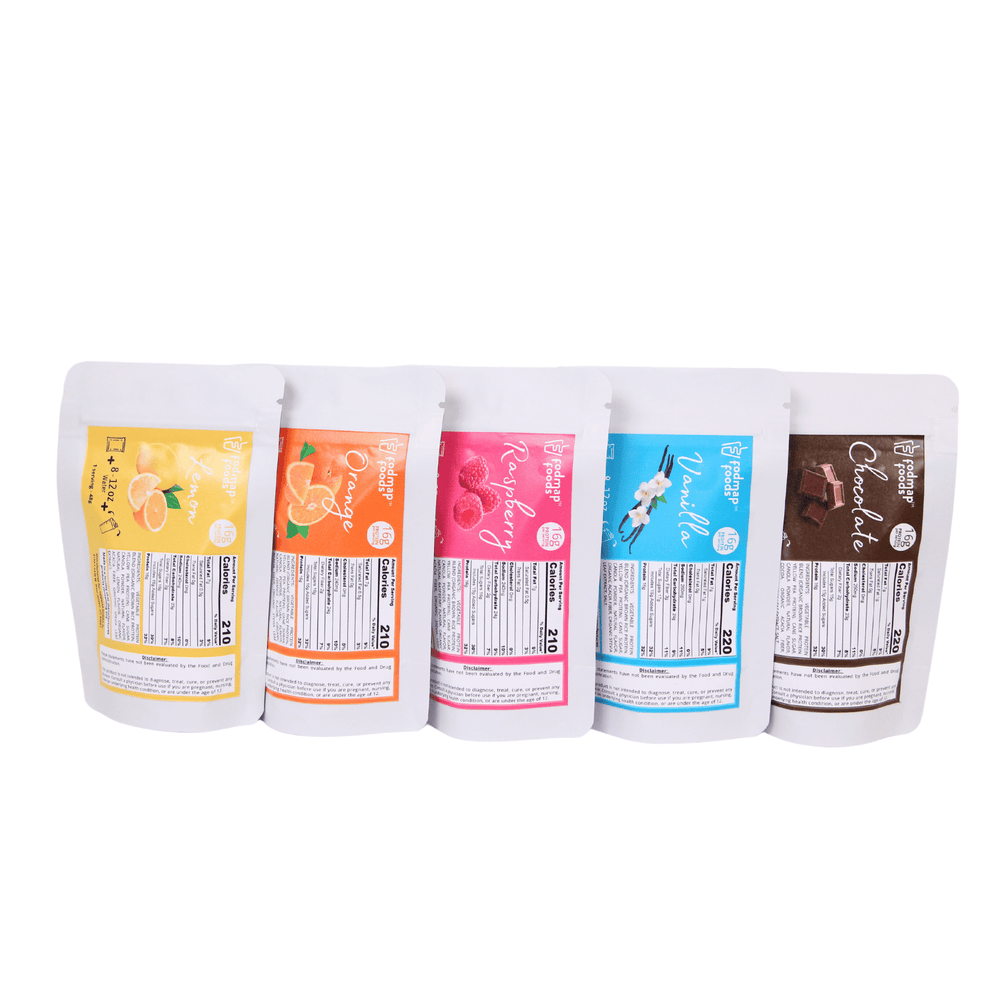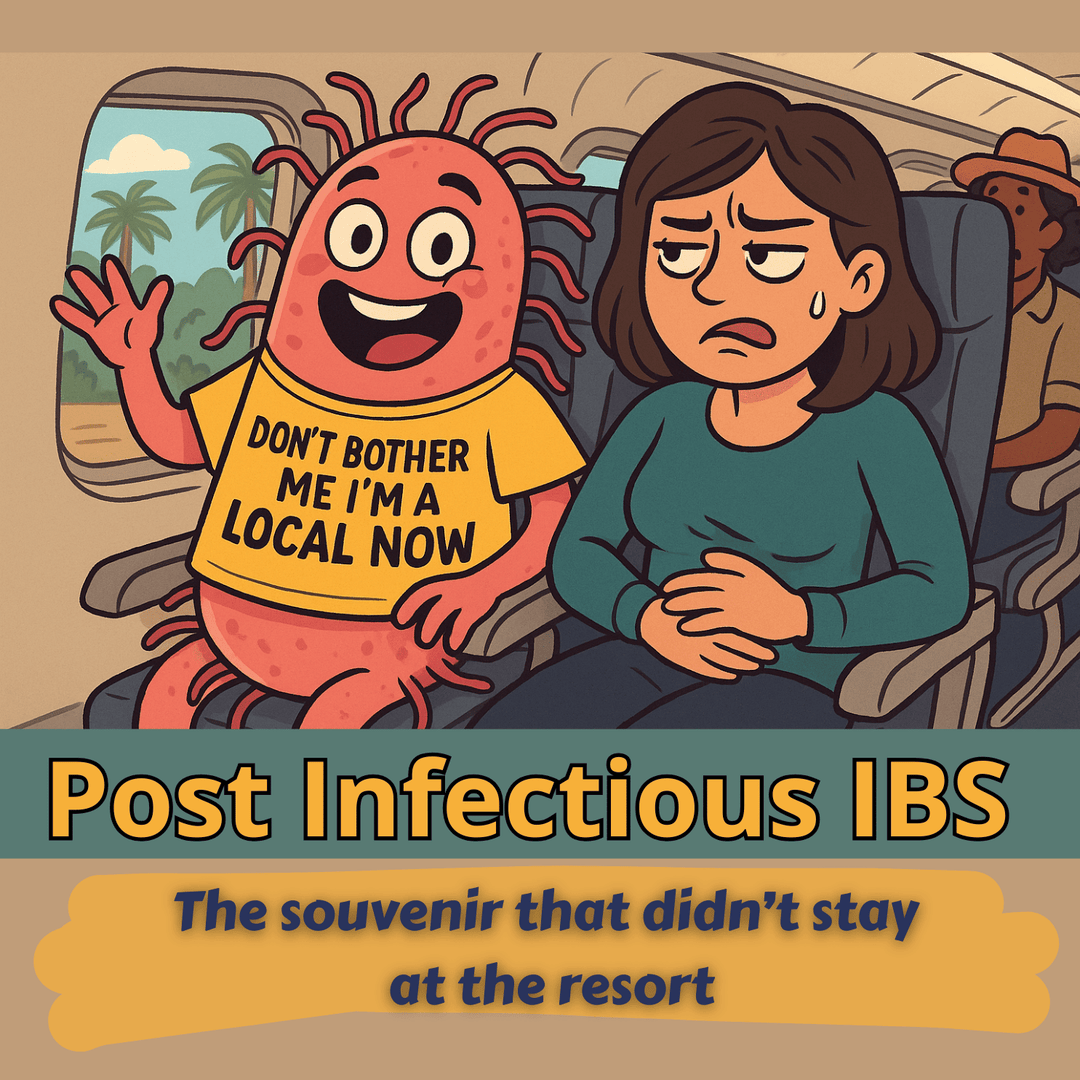What is the relationship between my mental health and my gut health?

Your Stress May Be Stressing Your Gut

The mind and body are deeply connected, especially when it comes to the gut. You may have experienced butterflies in your stomach when you were nervous or a stomachache when feeling overwhelmed. These sensations illustrate the powerful link between our brain and our digestive system, often called the gut-brain axis. But for people with stomach and digestive issues, this connection can be more than just a passing feeling. Instead, it can significantly impact their quality of life. Understanding the relationship between stress and gut health can be a key step in managing your symptoms.
Understanding the Gut-Brain Connection

The gut-brain axis is a two-way communication network between our brain and gut. It involves a combination of nerves, hormones, and gut microbes that send signals back and forth. When we experience stress, our brain activates the “fight-or-flight” response, flooding the body with stress hormones like cortisol. While this response is helpful in emergencies, it can wreak havoc on our digestive system if it becomes chronic.
What Happens During Stress?

When the body is under stress, digestion slows down or speeds up. The fight-or-flight response diverts energy away from the digestive process to focus on what the body perceives as more immediate needs, such as increasing heart rate or pumping blood to muscles. This disruption can cause or worsen IBS symptoms like stomach pain, bloating, diarrhea, or constipation.
• Changes in Gut Bacteria: The community of bacteria in your gut, known as the microbiome, plays a critical role in digestion, immune function, and even mood regulation. Chronic stress can negatively alter the balance of these bacteria, leading to a more inflammatory environment. According to The Calm and Happy Gut, stress can reduce the diversity of gut bacteria, which is crucial for a well-functioning digestive system .
• Increased Gut Permeability: Stress can also make the lining of the gut more permeable, a condition commonly known as “leaky gut.” When the gut lining is more porous, larger molecules, bacteria, and toxins can pass into the bloodstream. This triggers the immune system and can lead to widespread inflammation, which aggravates IBS symptoms.
• Heightened Gut Sensitivity: People with IBS often have more sensitive guts. Even small amounts of gas or stool movement in the intestines can cause extreme discomfort. Stress can amplify this sensitivity, making normal digestive processes feel more painful. Try Nerva, a program specializing in gut-brain therapy, explains that stress activates neural pathways that can increase pain perception in the gut.
The Science Behind Stress and IBS
Many studies have shown that people with IBS have higher levels of stress, anxiety, and depression compared to those without IBS. The brain and gut are in constant communication, so emotional distress can lead to physical symptoms in the gut. Dr. Emeran Mayer, a renowned gastroenterologist and author of The Mind-Gut Connection, emphasizes that psychological stressors can make the gut more reactive. This hyper-reactivity leads to muscle spasms, increased bowel movements, or constipation, depending on the person.
Harvard Health echoes this, stating that the gut-brain axis plays a crucial role in IBS. The gut is home to millions of nerve cells and produces 95% of the body’s serotonin, a key neurotransmitter that regulates mood. When stress interrupts these processes, IBS symptoms can flare up. This creates a cycle where stress worsens IBS, and IBS worsens stress. Breaking this cycle involves strategies that address both the mind and the gut.
Practical Strategies to Lower Stress and Improve Gut Health
Managing stress is essential for everyone, but it’s particularly important for those with IBS. Here are effective, research-backed ways to manage stress and support your gut-brain connection.

1. Practice Mindfulness and Meditation
Mindfulness and meditation have been widely studied for their ability to reduce stress and improve gut health. These practices can calm the nervous system, lowering cortisol levels and promoting a more relaxed digestive state. According to Harvard Health, mindfulness techniques help increase awareness of the body and manage emotional responses to stressors. Mindfulness doesn’t have to be complicated; even a few minutes of deep breathing daily can make a difference.
There is even a specific app for improving the brain gut connection. Nerva is a program built around gut-directed hypnotherapy—a science-backed approach that helps retrain the communication between your brain and gut. Through simple, 15-minute daily sessions, Nerva guides you to relax and reframe the way your mind perceives gut signals. Over time, this practice can ease symptoms, improve your quality of life, and give you tools to manage IBS in a way that feels natural and empowering. It’s not just about treating symptoms—it’s about understanding the root cause and fostering a calmer connection between your mind and body. Head to their website to take the quiz.
• Guided Meditations: Consider using meditation apps like Headspace or Insight Timer.
• YouTube Video: Watch a mindfulness video with visuals that can help reduce anxiety and focus on the present moment.
2. Incorporate Regular Exercise

Exercise is another excellent way to relieve stress and promote healthy digestion. Physical activity, whether it’s brisk walking, jogging, or strength training, helps the body produce endorphins, also known as “feel-good” hormones. These hormones can counteract the stress response. However, it’s essential to choose exercises that feel good for your body and don’t overstrain the gut. For many people with IBS, low-impact activities like yoga or pilates are particularly beneficial.
• Yoga for Digestion: Yoga has been shown to activate the parasympathetic nervous system, which supports rest and digestion. Specific poses like twists and gentle forward folds can improve gut motility.
• YouTube Video: Try this yoga video that focuses on easing digestive discomfort through gentle movements.
3. Explore Gut-Directed Hypnotherapy
Hypnotherapy is a unique but highly effective way to manage IBS symptoms through the gut-brain axis. According to Try Nerva, gut-directed hypnotherapy uses the power of suggestion to reduce the brain’s focus on gut sensations, decrease pain perception, and relax the digestive system. Studies have found it to be effective for many IBS patients, even those who haven’t responded well to traditional treatments. Programs like Nerva offer guided sessions that can be accessed from the comfort of your home.
4. Practice Progressive Muscle Relaxation (PMR)
Progressive Muscle Relaxation involves tensing and then slowly releasing each muscle group in the body, from head to toe. This method can reduce physical tension, which is often a physical manifestation of stress. Practicing PMR before bedtime can improve sleep quality and help the gut recover overnight. The Calm and Happy Gut recommends starting with just 5–10 minutes a day to notice the calming effects.
Additional Stress-Management Techniques

1. Cognitive-Behavioral Therapy (CBT): CBT is a type of therapy that focuses on changing negative thought patterns. It’s effective for people with anxiety, stress, and IBS. By reprogramming your thoughts, you can reduce how much stress affects your physical health. Harvard Health reports that CBT has been successful in alleviating IBS symptoms by teaching people healthier coping mechanisms.
2. Establish a Relaxing Bedtime Routine: Quality sleep is crucial for managing stress and promoting a healthy gut. Turn off screens at least an hour before bed, use calming essential oils like lavender, and read a book to unwind. Sleep and stress are closely linked, and a well-rested body handles stress much more efficiently.
3. Dietary Adjustments: While it might seem unrelated to stress, the food you eat can impact your mood and stress levels. A diet rich in fiber, lean protein, and fermented foods can improve gut health. Avoiding common IBS triggers like high-FODMAP foods may also help keep symptoms at bay. The Calm and Happy Gut suggests keeping a food diary to pinpoint foods that might be affecting your digestive system.
The Role of Mental Health Support
Addressing mental health can be one of the most significant ways to improve gut health. The gut-brain connection means that working on your emotional well-being will have a direct impact on your digestion. For those needing extra support, consider consulting a mental health professional who understands the complexities of IBS. Support groups, both online and in-person, can also be a great resource.
• Try Nerva: A program that combines gut-directed hypnotherapy with practical IBS management tips. Learn more here.
• The Calm and Happy Gut: Offers a holistic approach to managing IBS, including diet and stress management tips. Visit The Calm and Happy Gut for more information.
• Harvard Health: Read about the latest research on stress and gut health here.
Dealing with IBS can be challenging, but understanding the gut-brain connection gives you powerful tools to improve your symptoms. While no single strategy works for everyone, a combination of mindfulness, exercise, gut-directed therapies, and a supportive diet can help manage stress and promote better gut health. Remember, it’s okay to experiment and see what works best for your body. Over time you’ll be better equipped to handle stress in a way that keeps both your mind and gut happy.
Sources:
1. Harvard Health: “The Gut-Brain Connection”
2. The Calm and Happy Gut: “How to Manage IBS Symptoms”
3. Try Nerva: “Hypnotherapy for IBS”
4. Healthline: “Mindfulness and Stress Reduction”
5. American Psychological Association: “Cognitive-Behavioral Therapy for Anxiety”








Leave a comment